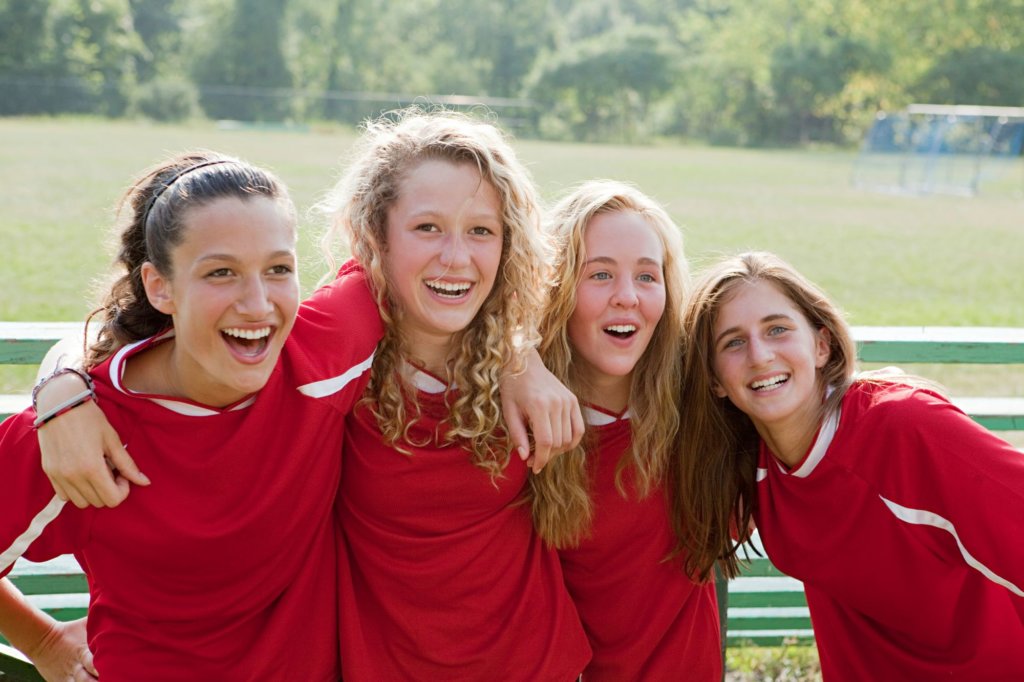In today’s online world, where screen time and social isolation are increasingly common, finding ways for kids to connect in meaningful ways is more important than ever. Whether it’s joining a sports team, a school club, or a community group, being part of something bigger than themselves can have a profound impact on their mental health and emotional development. Let’s explore some of the key mental health benefits kids experience when they’re part of a club or team sport that they enjoy.
Creating a Sense of Belonging
One of the most powerful aspects of joining a group activity is the sense of belonging it can create. Children who are part of a team or club often feel like they are part of a community, which provides them with a stronger sense of identity and connection.
This feeling of belonging helps kids form bonds with their peers, creating lasting friendships and giving them a safe environment to express themselves. When kids have a group of people their age who support them, they can experience a boost of self-worth and security.

Reducing Feelings of Isolation
For many children, school or home environments can sometimes feel isolating—especially for those who may struggle with social skills or confidence. Participating in a club or group sport has the potential to break down these barriers by providing opportunities for children to interact in a structured, supportive environment.
As they engage with others who share their interests, they’re less likely to feel lonely or disconnected from their peers. The camaraderie of working together toward a shared goal can reduce feelings of isolation and build stronger social bonds.
Managing Stress in a Healthy Way
As adults, we might forget how stressful life can be for kids, from academic pressures, navigating friendships, and the challenges of growing up. Clubs and group sports provide a valuable outlet for kids to manage stress in a healthy and constructive way.
Through physical activity, creative expression, or brain exercises, children can channel their energy and emotions in positive ways every day. Regular participation can allow for the release of built-up tension, the development of better coping mechanisms, and the sense of relaxation afterward.
Building Confidence and Self-Esteem
Being part of a group activity gives kids the opportunity to learn new abilities, from improving at a sport to developing leadership skills or improving their communication. Achievements like these, big or small, can build confidence and self-esteem.
When children see their efforts paying off—whether through winning a game, presenting a project they worked hard on, or simply getting better at a skill—they feel proud of themselves. This confidence can carry over into other aspects of their lives, helping them tackle challenges with more resilience.

Reducing Anxiety and Improving Mood
Clubs and team sports typically provide additional structure, which can be comforting and helpful for kids. Knowing they have regular practices, meetings, or activities creates a routine that helps them feel more in control over their lives.
In addition, the physical activity involved in sports can can release endorphins—the body’s natural mood booster—which can reduce anxiety and improve mental wellbeing. Kids who participate in team sports often feel more relaxed and in a better mood after engaging in physical play, while those in clubs find joy in shared creativity or problem-solving.
The Key: Find Something Your Kid Enjoys
While the mental health benefits of clubs and group sports for kids are undeniable, it’s important to make sure that your child is participating in an activity they truly enjoy. Pushing a child to play a sport when they would rather be in science club or an art class can have the opposite effect on their mental health, leading to frustration, resentment, or burnout.
Encourage your child to give new activities a fair chance, but if they clearly express a desire not to continue after a season or semester, it’s essential to listen to them. Let them explore other options—choir or band, another sport, or something else they’re interested in. When children feel a sense of joy and interest in what they’re doing, they’re much more likely to experience the positive mental health benefits that come with being part of a group.
From creating a sense of belonging to managing the stress of growing up, group activities can help children grow emotionally and mentally. As they build confidence, kids develop important skills and resilience that can help them throughout their lives. So whether it’s a team sport, a debate club, or an art class, encouraging kids to join a group activity they enjoy can have lasting positive effects on their mental health.